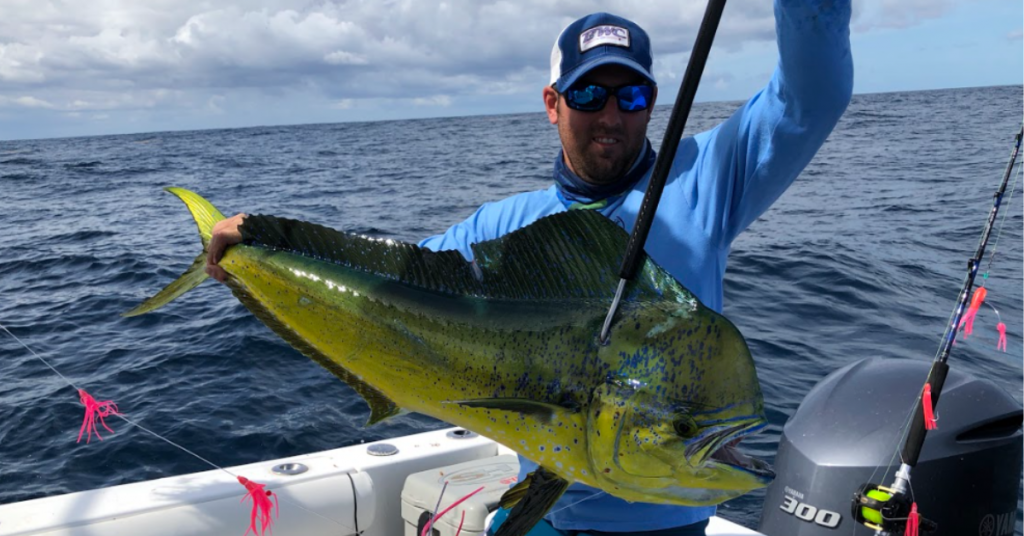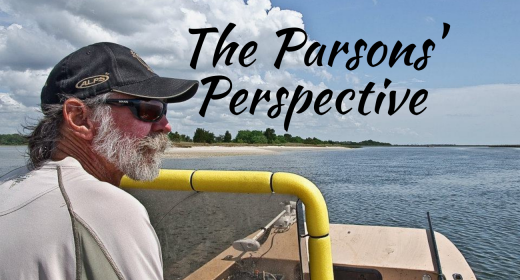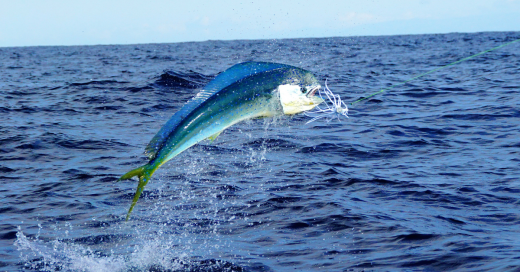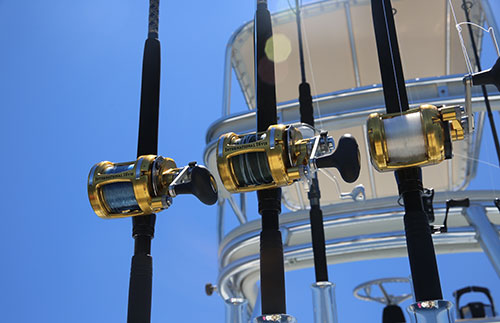Plan A-B-C…..Offshore Fishing Game Changer
A successful day of offshore fishing takes much more than great tackle, a super list of waypoints, and years of experience. It also requires developing and having the discipline to follow a well-thought-out plan, evenly more important today with the rising fuel prices. So here are a few ideas on what you can do to minimize your costs and have the most productive day fishing possible. Fishing from a 34′ center console boat is a bit different than that of an enclosed and larger sportfishing boat.
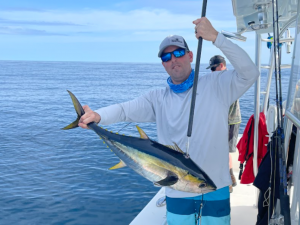
Weather is a greater factor and it takes a different kind of planning and that’s where we start. We check to see what our best window for fishing will be the next day and determine the wave height for our target area. This will determine the obvious. What will the ride out be like, and what the fishing will be like if we’re trolling or bottom fishing, and it applies to our comfort or most of all safety. This information will determine where we fish or if we’ll fish at all.
Next is gathering information on what’s biting and where. Understanding that what might be biting and their location can oftentimes be different from day to day. However, having a basic idea is always a plus. This idea comes from multiple sources such as satellite shots and groups of fellow anglers that will share this type of information. Then we start prepping the boat and gear. Each of the crew members knows their specific task and carries it out. The list includes fueling the boat, checking and loading the gear to preparing sandwiches for lunch later in the day. In our case, this runs like clockwork.
Based on our weather and fishing information from the day before our actual fishing day, we start setting up our actual fishing plan. We break it up into 3 separate parts, parts A-B and C. These distinctive parts play an important role in maximizing the success of our trip. Most often, we troll first. That’s plan A. We head to the pre-determined waypoint but stop about a mile and a half before getting there to put out our lines. This strategy allows us to set out our lines without disturbing the actual hotspot. It also enables us to take advantage of hooking up on any fish that may be moving from the target area. Moving closer to our designated area we start looking for what we call an “edge.” This is where the water has a significant break in water temperature or color or where surface structure has congregated—weed lines.
We troll for about 4 hours and based on our success or lack thereof we decide what to do next. Plan B is determined. Our options are to stay and continue to troll or move on and start bottom fishing, or plan C, move to a deeper area and try deep dropping. Usually, we go with bottom fishing first and move to plan C to deep drop. By doing this we know that we will almost always catch fish and have a nice haul to return home with.
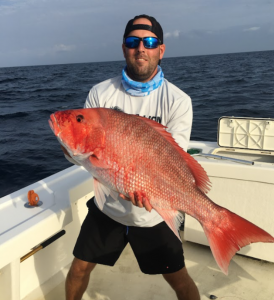
When bottom fishing, we’re looking for triggerfish, sea bass, beeliners, groupers, amberjacks, etc. All great table fare. We find our spot and use our trolling motor with a “spot lock” to hold us in place. The “spot lock” also allows us to move short distances in the event we’re not successful at first. We also use scraps from fish we have caught and cleaned earlier so we don’t spend valuable time buying or catching bait. When cleaning a catch we just pitch the scarps in a bag and freeze it until our next trip.
Lastly, we move on to plan C which moves us to a deep area for deep drop fishing before returning home with what we hope is a box filled with good eatin’ fish. Once back, the crew goes to work cleaning our day’s catch, as well as the boat and storing the gear. We’ve become over time a well-oiled machine with each of us knowing what our duty is. This makes it better for all of us.
Planning is key to a successful fishing trip. As for me and the guys I fish with, we enjoy laying out that plan. It takes out a lot of the guesswork and minimizes mistakes as well as makes for a safer and more productive trip. You can create your plan based on your interest and needs. In the end, it’s all about enjoying the sport.
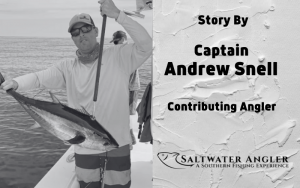
You may be interested
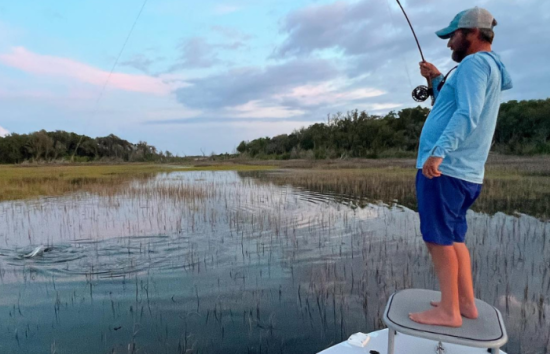
Sight Fishing Like A Pro
Tim Wilson - June 19, 2025Sight fishing can be a rush when done right. It’s taking your inshore fishing to the next level with a dose of adrenaline. It requires great upper-level…
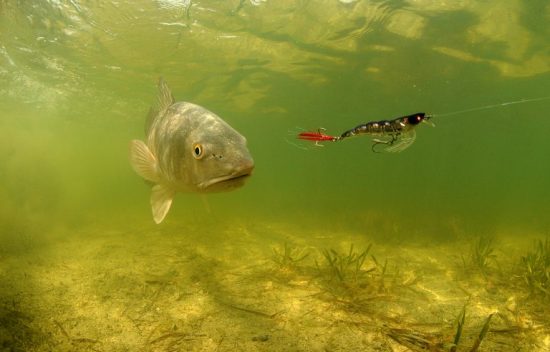
My Fishing Spot’s Better Than Yours…..Increase Your Your Hotspots
Tim Wilson - June 9, 2025Every angler has their favorite go-to spots—the kind of place where they landed great fish just a few months back. It might be a familiar dock or…
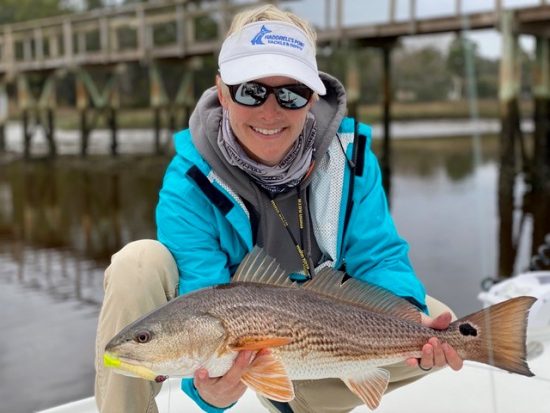
Pre-Planning For the Next Day’s Fishing Trip Like a Pro
Tim Wilson - June 9, 2025While many saltwater anglers just roll out of bed and head to the boat ramp, the top-notch fisherman has a different approach. It starts before the day…

